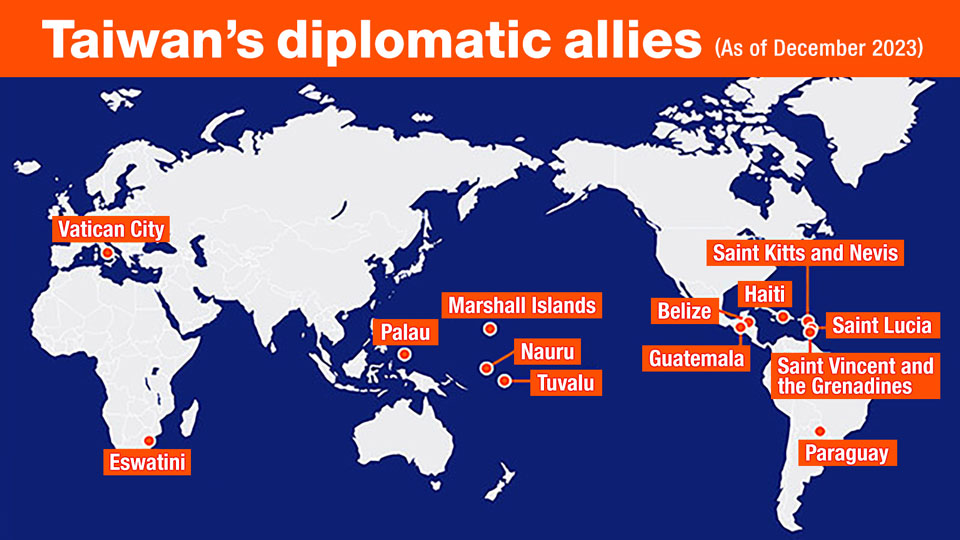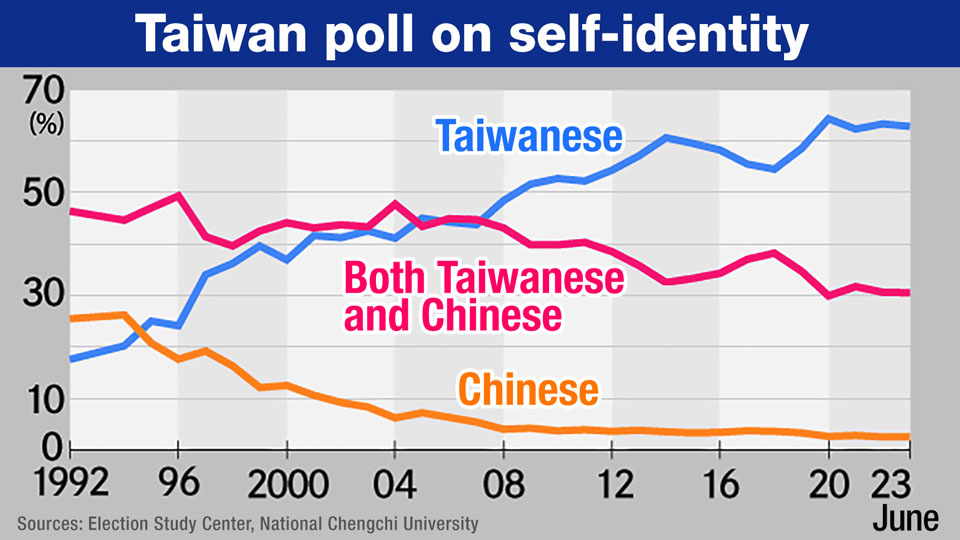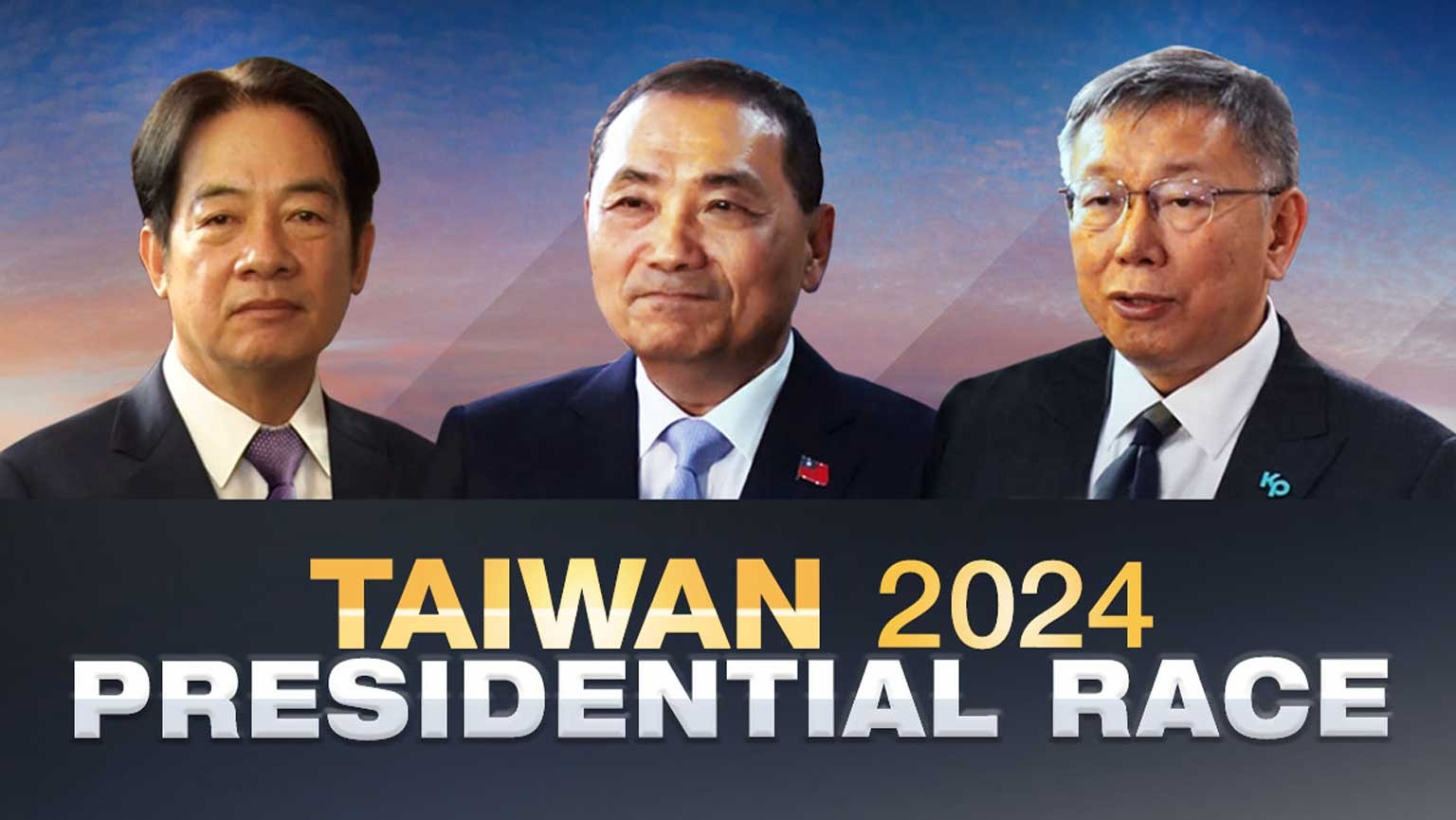*Click here to read:
A Japanese academic's view of Taiwan's presidential election (January 9, 2024)
Can you briefly explain the relationship between Taiwan and China?
Beijing has long maintained that Taiwan is part of China. Taiwan, however, has had its own government for more than 70 years.
Taiwan's official name is the Republic of China and it has a different political system than China. It also has its own currency and passport. Objectively speaking, Taiwan could be said to have the characteristics of a sovereign state. But only 13 states recognize Taiwan as an independent country. Japan isn't among them.

Do people in Taiwan consider themselves Taiwanese or Chinese?
Many have long considered themselves to be Chinese or both Taiwanese and Chinese because they have roots in the mainland. But young people began increasingly thinking of themselves as Taiwanese as cross-strait tensions rose and greater societal differences emerged.
A recent opinion poll shows the majority of Taiwan's people now consider themselves to be Taiwanese.

What's the One China principle?
As Taiwan started democratizing in the 1990s, Beijing began more vigorously asserting the claim that Taiwan is an inalienable part of China.
The US recognizes the People's Republic of China as China's only legal government, and acknowledges China's position claiming that Taiwan is part of China.
Japan also recognizes the PRC as China's only legal government and says it "fully understands and respects" Beijing's position that Taiwan is an inseparable part of China.
Is the One China principle the same as the One China policy?
The One China principle was established by China. The main point is that Taiwan is an inalienable part of China.
Under the One China policy, Washington accepts the One China principle to some extent, but continues to maintain unofficial relations with Taipei and forms policies based on the fact that China and Taiwan are governed separately.
What's stopping unification?
Both sides don't reject unification in principle, but the people of Taiwan want to maintain democracy and a free society. While China's economy is very strong, Beijing has a political system that would hamper democracy and a free society.
What's Taiwan's status in the United Nations?
The ROC was a member of the United Nations and a permanent member of the Security Council. However, this changed in 1971 when the UN General Assembly adopted a resolution stating the PRC is the only lawful representative of China.
But Taiwan can still indirectly participate in a number of important UN organizations as an observer, including the World Health Organization.
*Click here to read:
How tension in the Taiwan Strait could trigger a war (January 11, 2024)

